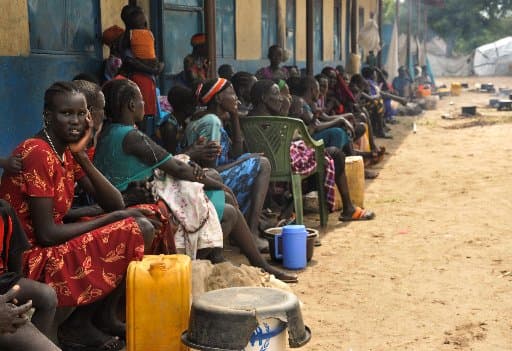YAOUNDE, Cameroon – South Sudan, a nation already grappling with a longstanding civil war and the devastating affects of climate change, has suddenly found itself being left on its own to handle a deepening hunger crisis.
The World Food Program has announced it is suspending its food rationing programs in parts of the country – a decision which, according to experts, is already leading to a worsening of the hunger crisis in the impoverished country.
“South Sudan is facing its hungriest year since independence,” said Adeyinka Badejo-Sanogo, the country director of the WFP in South Sudan.
“We are already in a crisis, but we are trying to avert the situation from becoming more explosive,” Badejo-Sanogo told reporters in Geneva recently.
He said reduced funding and increasing operating costs, including the high cost of food and fuel, have forced the WFP to make extremely difficult decisions. As a result of a growing funding gap, WFP has been forced to suspend food assistance to over a million people.
“We are extremely concerned about the impact of the funding cuts on children, women and men who will not have enough to eat during the lean season,” Badejo-Sanogo said.
“These families have completely exhausted their coping strategies. They need immediate humanitarian assistance to put food on the table in the short-term and to rebuild their livelihoods and resilience to cope with future shocks,” he said.
The country director for Catholic Relief Services, the international development wing of the United States Bishops’ Conference, couldn’t agree more.
“CRS estimates that across its operational areas, over 250,000 people, including mothers, school children, and infants will be impacted by this decision, with potentially tragic consequences,” said John O’Brien, CRS’ representative in South Sudan.
O’Brien told Crux that “more than eight million people in South Sudan are experiencing severe food insecurity, the worst figure on record since independence.”
He said the war in Ukraine could be largely blamed for the worsening hunger in a nation also facing severe flooding and localized drought.
“The Ukraine crisis has increased the price of fuel and basic goods. The continuation of the war in Ukraine would lead to high humanitarian operational costs and a potential reduction in the number of people that can be assisted without increased funding,” O’Brien said.
“The WFP reports that when comparing prices at the end of June with the last week of February, the price of staple cereals (sorghum and maize) have increased in all monitored markets, notably by 100 percent or more in Northern Bahr El Ghazal and Eastern Equatoria.”
“In many locations in Greater Jonglei, local markets are completely closed, with no food being delivered or sold. This year’s rains have been patchy and insufficient in most locations. Crops that have been planted are either failing to germinate, owing to lack of rain, or are not maturing.”
With hunger comes its attendant evils of insecurity and theft.
“Hunger is undoubtedly a grave concern. As food security levels deteriorate in Greater Jonglei, CRS is receiving increasing reports of violent predatory cattle raiding and criminal activity, including the theft of household goods and foodstuffs, both within and between communities,” O’Brien told Crux.
“The civilian population in South Sudan is heavily armed. As the hunger crisis worsens, civilians holding weapons are using them against each other as a survival strategy, seizing food, livestock and other resources than can be exchanged for food. Equally disturbing, there have been several reported incidents of actual or attempted suicide by people facing the prospect of starvation,“ he said.
The situation has worsened the country’s already precarious security dynamics. At least 209 people were killed and 33 others wounded across the country in June alone, according to a violence tracker by the Juba-based civic group known by its initials CEPO.
It’s led to concerns that the 2018 peace deal signed to by the country’s leaders could be unraveled, once again provoking open conflict.
“The fear of violence has increased amongst some communities. There are growing levels of tension and anxiety among communities, particularly those that have experienced the above violence,” O’Brien said.
He said CRS was providing humanitarian assistance to over a million people.
“However, while we have teams with the know-how in places to do so much more, CRS is receiving an insufficient level of funding. Due to a reduction in funding, we will be forced to close our health and nutrition programming in Duk and Ayod counties in Jonglei State in mid-August, leaving more than 76,000 people, including women and children, without access to lifesaving health care and nutrition services. “
South Sudan obtained its independence from Sudan in 2011 but collapsed into civil war just two years later.















